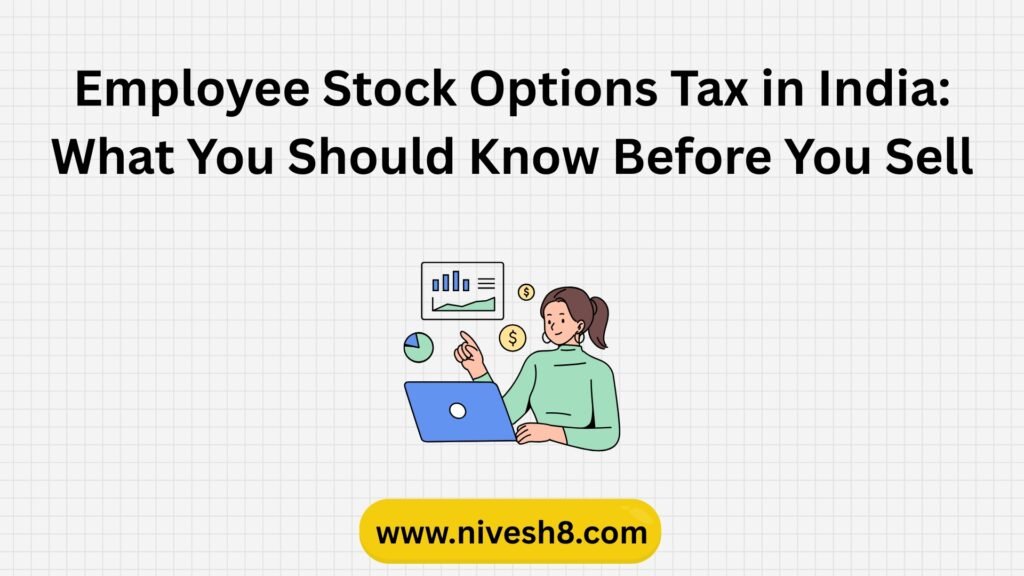Many businesses, particularly startups and technology companies, provide ESOPs—or employee stock options—as part of your pay scale. They have tax rules even if they can be a great way to create riches. Knowing employee stock options tax will help you avoid later surprise.
Let us dissect it using simple language.
Employees’ Stock Options, or ESOPs
After a specified period—called the vesting period—ESOPs grant you the right to purchase fixed-price shares of the company you work for. Once you own the shares, you are free to hold or sell them anyway you like. Usually given as part of your CTC (Cost to Company), they serve to honor long-term loyalty and performance.
When Would the Employee Stock Option Tax Apply?
Two phases apply in India when employee stock options tax is deducted:
- During the Exercise Time
When you “exercise” your ESOPs—buy the shares—the difference between the market price and the exercise price is regarded as perquisite income.
This is included in your pay and taxed according to your slab rate.
For instance:
- Exercise cost: ₹50
- Market price: ₹150
- Shares count: 100
- Taxable perquisite = ₹100 x 100 = ₹10,000 (deducted from pay)
- Exercise cost: ₹50
- Regarding Share Sales at Time
Should you subsequently sell those shares, the profit is taxed as capital gains.
- Short-Term Capital Gains (STCG) if sold within 24 months.
- Long-Term Capital Gains (LTCG) if sold after 24 months.
Capital gains equal sale price less FMV (Fair Market Value on exercise date).
- Short-Term Capital Gains (STCG) if sold within 24 months.
Special Case for New Companies
There is some tax relief at the exercise stage for staff of qualified startups:
Perquisite taxes can be postponed for five years or until:
- You sell the ownership of the shares.
- You leave the business.
- Whichever occurs first, the company gets listed.
This will help startup staff members who might not have cash on hand to pay taxes straight after exercising options.
Reporting ESOPs in ITR
- Show perquisite income in the salary section (as shown in Form 16).
- Report capital gains following the capital gains schedule.
- Correctly reference exercise and sales dates.
- Record exercise cost, FMV, and sales price.
Final Notes
Once you see the two stages—exercising and selling—employee stock options tax is not as frightening as it sounds. Though you have to budget for the tax impact, ESOPs can be a good component of your income. Always record dates and amounts; if your business is unlisted or based overseas, especially, consult a tax professional.



